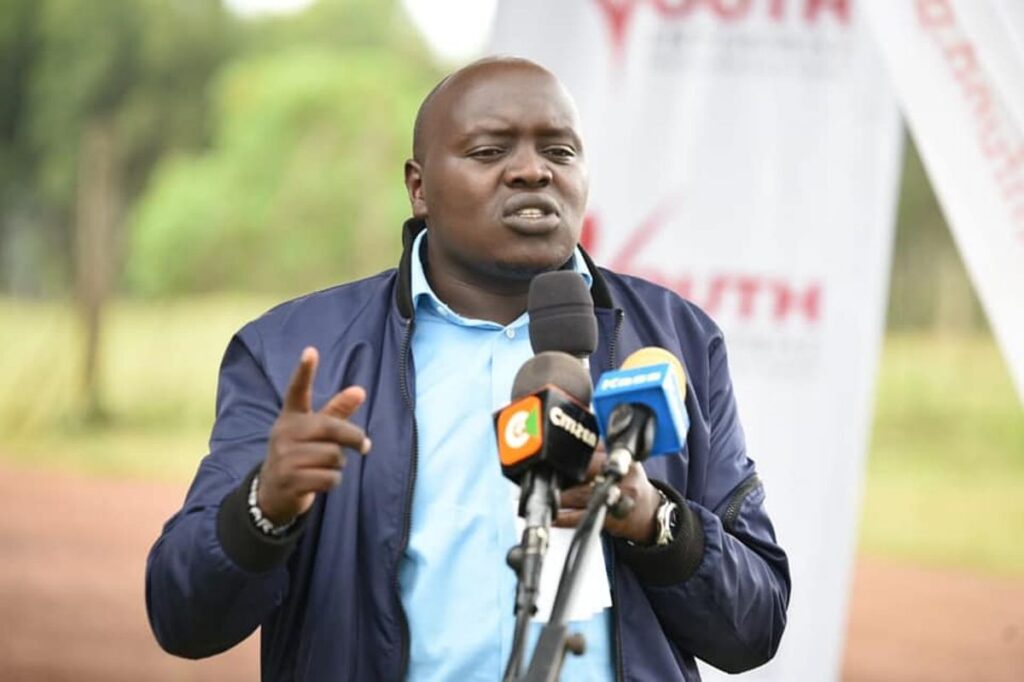Treasury CS told to stop politics, focus on fighting drought

By Erick Ludeya
Nandi Senator Samson Cherargei has asked National Treasury and Planning CS Ukur Yatani to focus on helping the North Eastern region overcome the ongoing drought effects instead of engaging in regional politics.
Mr Cherargei wants the CS to collaborate with relevant government ministries to help mitigate the effects that have largely affected Livestock even as thousands of families lament hunger.
He said this on Wednesday during a senate session to discuss the state of the nation regarding the ongoing drought in parts of the country.
“I would like to see the see work on more measures to fight hunger and drought instead of focusing on his Upya Movement,” he said
Already the National Drought Management Authority (NDMA) has said that people living in 23 counties across the arid north, northeastern and coastal parts of the country will be in “urgent need” of food aid over the next six months, after poor rains between March and May this year.
The crisis has been compounded by Covid-19 and previous poor rains, it said, predicting the situation will get worse by the end of the year, as October to December rains are expected to be below normal levels.
The affected regions are usually the most food-insecure in Kenya due to high levels of poverty.
Last month, President Uhuru Kenyatta declared the drought a national disaster promising “comprehensive drought mitigation measures”.
But Mr Cherargei feels that the government is not doing enough to take advantage of water resources in the country.
He was alluding to the coming together of leaders from Northeastern and other ASAL areas, leaning towards President Uhuru Kenyatta and ODM leader Raila Odinga who announced the formation of a new movement to champion the region’s political interests.
Led by Treasury CS Ukur Yatani and Eldas MP Adan Keynan, the leaders said the Upya Movement will unite the region behind one political voice.
They said the movement, which will be grassroots-oriented, will salvage the region from the political menu and propel it to the negotiating table where political and development matters are negotiated.
At the same time,it is estimated 2.1 million Kenyans face starvation due to a drought in half the country, which is affecting harvests.
In July, the UN Food and Agriculture Organization in Kenya said the country needed 9.4bn Kenyan shillings (£62m) to mitigate the effects of the drought between July and November.
However, the government insists that it has up-scaled intervention efforts to assist Kenyans affected by the drought, through the provision of assorted relief assistance to the affected families.
Government spokesperson, Col. (Rtd) Cyrus Oguna, said that the distribution of physical food for the month of October 2021 to all the affected Counties is in progress, for which the Government has spent Sh1.2 billion to procure.
Oguna, speaking, Wednesday, during a brief on the government’s drought mitigation measures, said that another Sh1.2 billion has been mobilised, for the month of November 2021.
He explained that monitoring activities indicated that 23 Counties were at risk of being food insecure and they have been classified into three groups based on the level of risk of severe drought and the cost of drought response.
Oguna said that Counties are in high risk of severe drought, hence requiring high cost of response mechanisms which include Garissa, Isiolo, Kilifi, Kitui, Mandera, Marsabit, Samburu, Tana River and Wajir.
Oguna said that another pillar of the Vision 2030 is infrastructure development covering roads for transportation of farm produce, provision of water for irrigation and livestock through the construction of dams, water pans and boreholes, and the construction of schools and hospitals, in areas affected by drought.
“The Government is working on educating communities mostly in ASAL areas on how they can adopt modern ways of farming and achieve sustainability and resilience. As of now, the strategy is in progress and we have achieved around 40 percent and there has been tremendous achievement, looking at the people who have been affected by the drought from 2011 up to date, the numbers have been reducing,” said Oguna.
He added that even the number of livestock affected by drought has gone down, insisting that the situation is not where the government wants to be, but it is getting better by the day and once Vision 2030 is fully rolled out, the government will be able to completely reduce the impact of drought.





